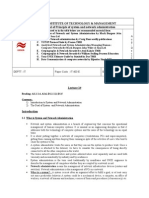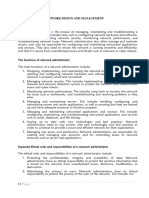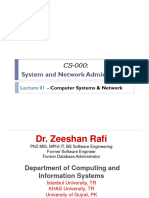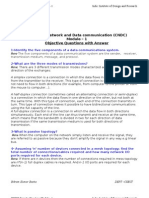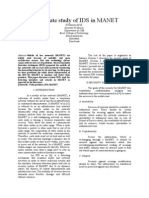0% found this document useful (0 votes)
28 views35 pagesComputer System Adminitration Lecture 1
The document outlines a course on Computer System Administration, focusing on network and systems administration. It covers definitions, roles, responsibilities, ethical issues, and challenges in the field, emphasizing the importance of system and network administration for business continuity, data security, and user support. Additionally, it discusses the human element in systems administration and the need for a systematic approach to managing technology effectively.
Uploaded by
majimbienCopyright
© © All Rights Reserved
We take content rights seriously. If you suspect this is your content, claim it here.
Available Formats
Download as PPTX, PDF, TXT or read online on Scribd
0% found this document useful (0 votes)
28 views35 pagesComputer System Adminitration Lecture 1
The document outlines a course on Computer System Administration, focusing on network and systems administration. It covers definitions, roles, responsibilities, ethical issues, and challenges in the field, emphasizing the importance of system and network administration for business continuity, data security, and user support. Additionally, it discusses the human element in systems administration and the need for a systematic approach to managing technology effectively.
Uploaded by
majimbienCopyright
© © All Rights Reserved
We take content rights seriously. If you suspect this is your content, claim it here.
Available Formats
Download as PPTX, PDF, TXT or read online on Scribd
/ 35

















